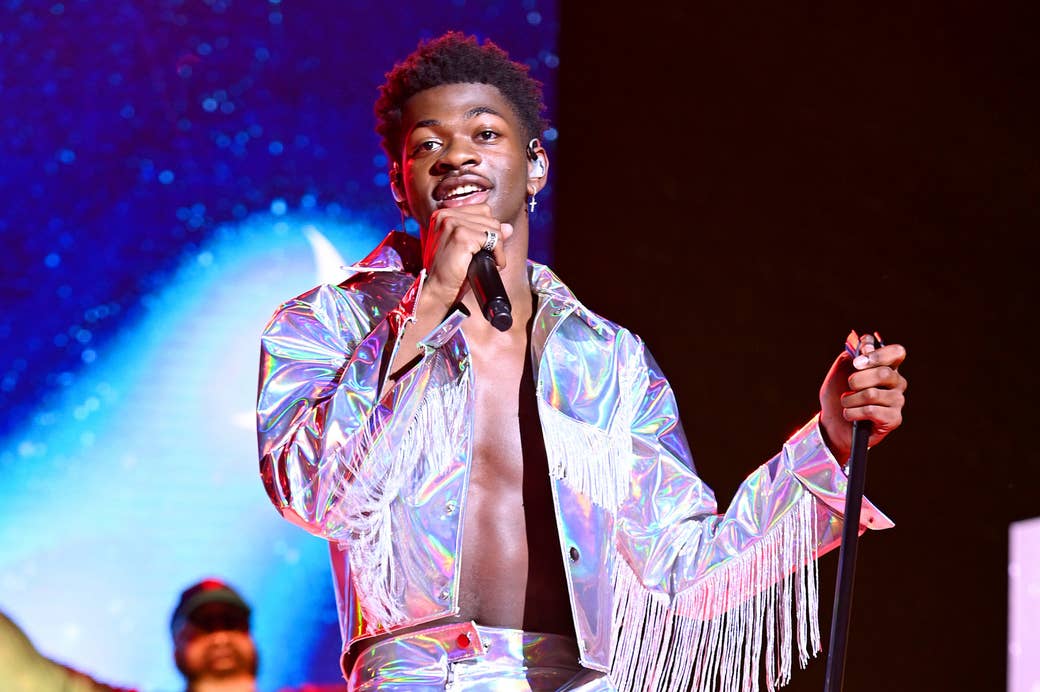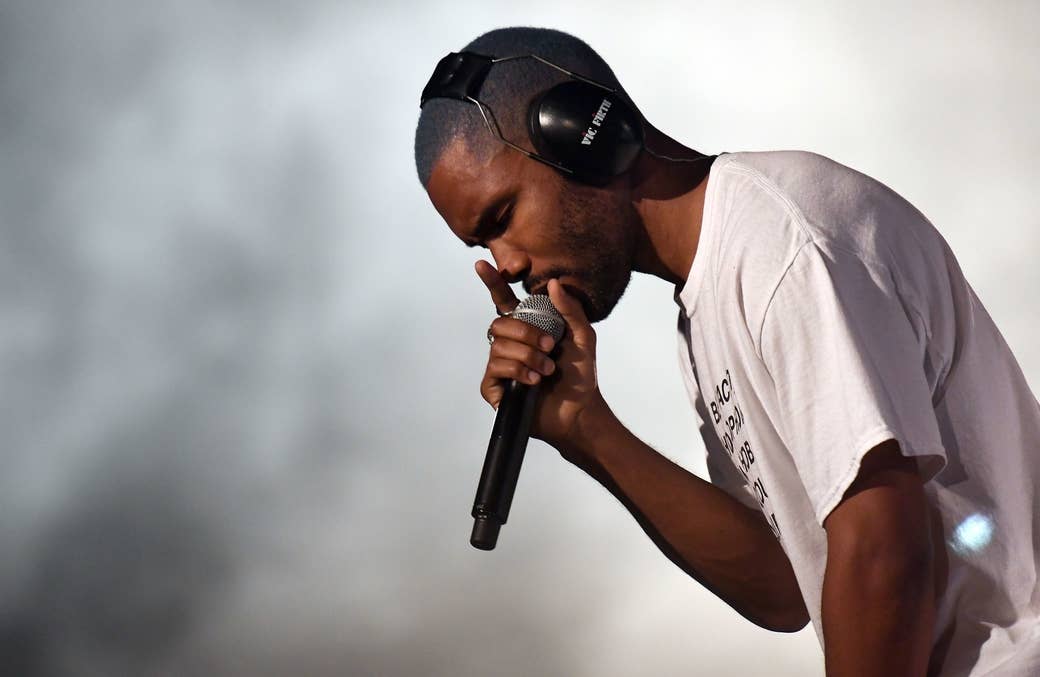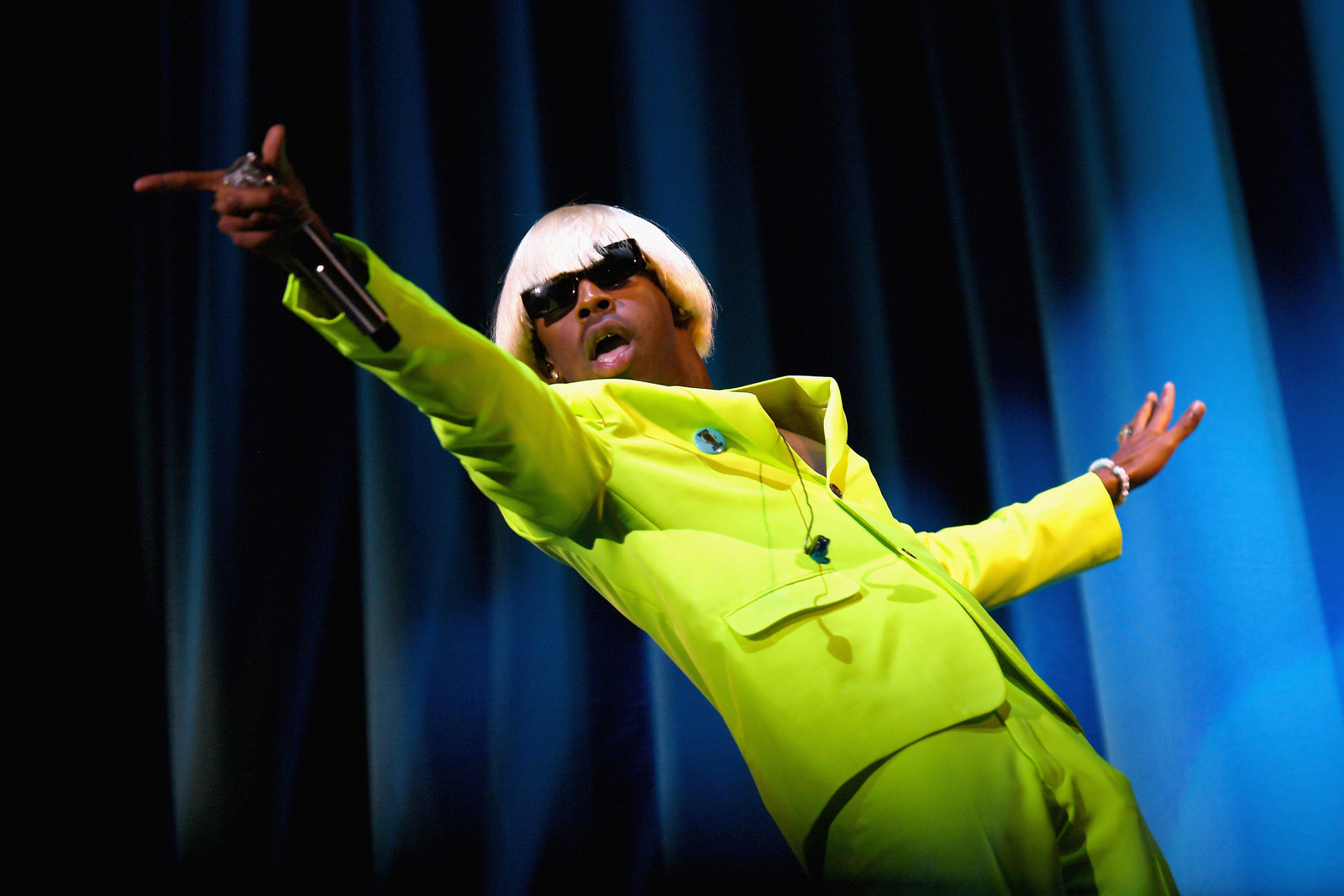
“There’s been plenty of speculation about this hot young r&b star’s sexuality, but most of it has been drowned out by the adoration by fans and famous alike,” wrote the gossip site Bossip in 2012. “After keeping folks guessing in 2011, this soul singer will answer any questions about which team he’s swinging for with his upcoming musical release.”
This was a blind item about Frank Ocean, then a quickly rising R&B star who would later address rumors about his sexuality on social media. But in a lot of ways, this story may well have been written about Lil Nas X now in 2019.
This June, which marked the 50th anniversary of the Stonewall riots, 20-year-old Lil Nas X, one of hip-hop’s most interesting new artists, came out. Or, at least, that’s what it seemed like.
“Some of y’all already know, some of y’all don’t care, some of y’all not gone [fuck with me] no more,” the “Old Town Road” rapper announced to his growing following of 2 million people on Twitter on June 30. He then instructed fans to listen to “C7osure (You Like),” a track from his debut EP 7, with a special emphasis that his legion of loyal supporters do it before “this month ends.” He signed off that tweet with three emojis, including one of the rainbow, a symbol famously synonymous with queerness.
The word “gay” did not appear anywhere in Lil Nas X’s initial tweets, which prompted varying headlines that read the star “seemingly” came out while others straight-up questioned whether he’d actually done the thing.
The ambiguity of the rapper’s word choice seemed to have been intentional. In a follow-up tweet later that day, he wrote, “deadass thought i made it obvious” with an attachment of his EP’s cover art depicting a building broadcasting the colors of the pride flag.
In his joking and Extremely Online way, Lil Nas X is challenging what it means to come out on the public stage — especially now, when fans feel their proximity to their favorite stars’ public lives must equal an all-access pass to their personal lives as well. But even after he essentially memed himself on Twitter, something he’s been excellent at for a long time, he still had to officially say the words “I am gay” during a televised BBC interview on July 5 for the world to take his announcement seriously. It appears as though celebrities still need to “officially” come out to the mainstream — by actually defining their labels — even if their hyper-attuned fans already know exactly what they were trying to say.
Coming-out narratives have changed since the days when stars like Ellen DeGeneres and Lance Bass boldly and definitively announced their sexual orientations in the late ’90s and mid-’00s. The messaging then was clear-cut: “Yep, I’m gay,” DeGeneres’s 1997 Time cover read in big red lettering with the star squatting and flashing a big smile. In the two decades since that unprecedented event, the coming-out game has evolved with the rise of social media. In 2018, the singer Kehlani came out as queer on Twitter because of fans’ relentless curiosity surrounding her sexuality. Prior to that, The Hate U Give actor Amandla Stenberg proclaimed her bisexuality in a video on Snapchat, signaling that this trend of coming out online was definitely here to stay. And though there are holdovers from that bygone era of making a declarative statement about your sexuality on glossy magazine covers — like Caitlyn Jenner’s 2015 cover of Vanity Fair — that format is typically reserved for A-listers.
What makes the manner in which Lil Nas X decided to come out so interesting is that he was able to control his own narrative without going into hiding and leaving his words up for interpretation, like his industry peer Frank Ocean, or by making conspicuously carnal and sometimes contradictory statements about queerness, in the vein of someone like Tyler, the Creator. Lil Nas X faced the decision to come out head-on — knowing he would face criticism — without forfeiting any part of his persona. This uncommon level of transparency from a black gay male hip-hop star is not only refreshing but extremely meaningful as his hit song “Old Town Road” just this week toppled one of the longest-running records in music history.

In the summer of 2012, just days ahead of the release of his debut studio album Channel Orange, R&B singer-songwriter Frank Ocean posted a story on his Tumblr about the time he fell in love with another man when he was 19 years old. “I sat there and told my friend how I felt. I wept as the words left my mouth,” Ocean wrote. “He patted my back. He said kind things. He did his best, but he wouldn’t admit the same. He had to go back inside soon. It was late and his girlfriend was waiting for him upstairs.” The admission came on the heels of rumblings that there were songs on his upcoming project in which Ocean referred to a male lover. Ocean’s candor was largely applauded as a huge leap forward for queer representation in R&B. “I don’t have any secrets I need kept anymore,” Ocean wrote at the end of his letter. “I feel like a free man.” The language the singer used implied he felt trapped, and that he somehow needed to emancipate himself from preconceived notions about how a queer black man is supposed to live and be — he was defining himself for himself.
“I hope that Frank Ocean doesn’t become ‘the gay singer,’” wrote former Ebony editor Jamilah Lemieux in 2012, “for it would be criminally unfair for him to wear that label as so many of his musical peers and elders are sleeping with and loving same gendered persons, while selling images of hyper-heterosexuality.” Lemieux was lamenting that visible, openly queer people are expected to take on representational burdens for an entire community. The obligation to be an authority on queerness for white celebrities doesn’t exist to the same degree simply because there are more of them. For a young black artist like Lil Nas X, however, coming out is still a way of breaking new ground in a genre mired in secrecy and anti-gay sentiment.
One of the most puzzling and complicated cases of anti-gay sentiment in the genre is Odd Future’s Tyler, the Creator, a well-known name in hip-hop who has simultaneously denigrated and hinted at his own apparent queerness for years now. Tyler caught a lot of heat for his frequent use and defense of the word “faggot” on his debut album Goblin. This is the same artist who said “I’ve been kissing white boys since 2004” on 2017’s Flower Boy. Tyler’s erratic approach to his sexuality leaves one wondering whether he’s actually being genuine when he says he’s interested in men, or if he’s just a troll. Asked by longtime television host Larry King in 2014 if there will ever be a “gay rap artist,” Tyler responded, “Maybe one day, but why does that shit matter? Like, if he wanna fuck dudes or whatever, why does that matter? Why do we care? That’s so crazy, right?”
Tyler’s defensive response highlights the ways in which he’s been evasive in his music and via his public persona when it comes to queerness. “But if it’s a con, it’s a committed one,” wrote the Atlantic’s Spencer Kornhaber in 2017. “In 2015, Tyler tweeted, ‘I tried to come out the damn closet like four days ago and no one cared hahahhahaha.’ Later that year he rapped, ‘How can I be homophobic when my boyfriend’s a fag? / And we been hiding in the closet like our passion is fashion, still trying to come out.’ He’s also referred to himself with gay slurs over the years and has joked — or was it a joke? — about having a thing for ‘freckly white guys.’”
This is, perhaps, one of the reasons why Lil Nas X still needed to confirm his queerness with a specific label in a traditional media outlet: because Tyler — and many other celebrities — have long tiptoed around the subject of their sexual orientation. Many argue that we’ll have achieved real LGBTQ progress on the day that queer people don’t “have to” come out. But there’s also an argument to be made that when a person defines themselves in clear terms, the queer community at large can more easily welcome them into the fold.

Before the world would come to know his truth, fans were speculating as far back as April and May about the “Old Town Road” rapper’s sexuality. In the days leading up to the revelation, Nicki Minaj stans allegedly outed him because he used to be a Barb — the name bestowed upon Minaj’s fanbase — and yet he recently collaborated with her rival Cardi B, an apparent betrayal. It’s been rumored that Lil Nas X used to be a tweetdecker who operated under the handle @NasMaraj. (Lil Nas’ team denies this.)
Though the internet may have ultimately forced his hand, Lil Nas X’s potential past as a person who was Extremely Online™️ has also given him the tools to come out on the internet in a way that afforded him a level of protection against trolls, while also staying true to his weirdo brand.
“Just cuz i’m gay don’t mean i’m not straight,” Lil Nas X tweeted the day after his big reveal. On its face, this was a completely zany thing to say, like most of the things he tweets; but this joke doubled as an indication that Lil Nas was choosing to have fun with what might have been a more sincere, dramatic announcement. He was also proving himself unfazed by those who are anti-gay. That tweet was followed by one that said: “Next nigga to say something offensive to me getting kissed.”
In his first televised interview since coming out, the rapper confirmed this joking strategy. “I understand how they just want that reaction,” he said, referring to anti-gay trolls. “But I’m just going to joke back with them.” He’s gotten so good at it, he said, because he’s been “learning the internet over the past couple of years.”
Both Ocean and Lil Nas X are similar in their esoteric approach to discussing their queerness. Five months after his coming-out, Ocean participated in a GQ interview in which he sidestepped a direct question about labels, namely if he considered himself bisexual. “You can move to the next question,” he told the interviewer. “People should pay attention to that in the letter: I didn’t need to label it for it to have impact.” Ocean was firm on his point that there was no need to “pry beyond that” because he was giving audiences something they could feel, no En Vogue.
“You can’t feel a box. You can’t feel a label,” he continued. “Don’t get caught up in that shit.”
Lil Nas X has taken a somewhat different approach — he has chosen to label himself, where both Tyler and Ocean have not — but, like both those artists, he’s also made clear he doesn’t want his orientation to eclipse what made the public fall in love with him in the first place: his music.
Since coming out, Lil Nas X’s hit song “Old Town Road” — once the subject of controversy earlier this year when it was deemed “not country enough” for the country music charts — has dominated the Hot 100 at No. 1 for an impressive 17 weeks so far. It demolished the decadeslong record set by Mariah Carey and Boyz II Men’s 1995 song “One Sweet Day” (an honor shared with Luis Fonsi’s “Despacito”) as the longest-running song to stay atop the chart ever, which was, until very recently, 16 weeks. This achievement feels prescient, given “One Sweet Day” was in part inspired by people who died during the AIDS epidemic, an illness that still disproportionately affects black gay men. To have a black gay artist usurp the song’s place feels, in a way, poetic.
Lil Nas been embraced by some of the biggest names in music, including Carey, Dolly Parton, Bruno Mars, Cardi B, and Billy Ray Cyrus, whose addition to “Old Town Road” ended up being the magic ingredient the up-and-coming artist needed to secure legitimacy as a country song. By all accounts, coming out doesn’t seem to have slowed Lil Nas’ trajectory; he’s both the product of queer black artists who have come before him, and he’s also forging his own path.
Long gone are the days, it seems, where the suspicion of being queer alone could be enough to eviscerate a black musician’s artistic ambitions, like it did with Tevin Campbell in the late ’90s. Black queer artists have been around since time immemorial, from Ma Rainey and Bessie Smith to Little Richard and Sylvester. And there are enough black queer artists in this current music era — Young MA, Taylor Bennett, Syd, Mykki Blanco, Big Freedia, and more — so that the weighty responsibility of being the only out hip-hop star doesn’t have to rest on Lil Nas’ shoulders alone.
Still, Lil Nas is undeniably the most high-profile gay black man in music right now, and making the choice to come out couldn’t have been an easy one. In an interview a few days after he sent those somewhat cryptic tweets at end of Pride Month, he said he thought about “never” coming out; he added that he considered “just like taking it to the grave or something.” But that changed once he got to his current level of fame and success. “I feel like opening doors for more people,” he said, adding that he hoped his revelation made fans “feel more comfortable” being themselves — however they identify. ●
